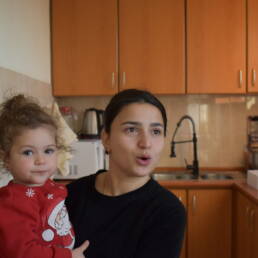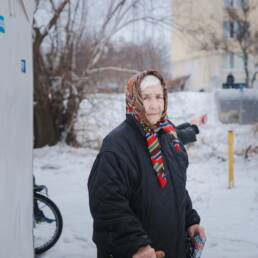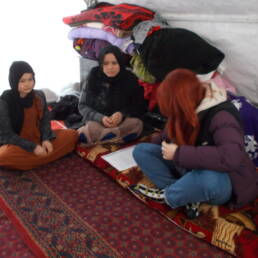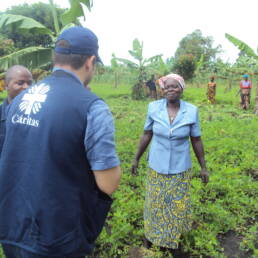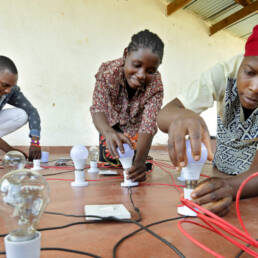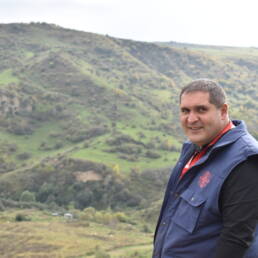Author
Jovana Loncarevic
DRR Coordinator
Caritas Serbia
Days of heavy rainfall caused severe flooding and landslides in western and southern Serbia, also affecting parts of Ukraine and Bosnia, at the end of June 2020.
In Serbia, 20 cities and municipalities declared a state of emergency, and more than 500 households were flooded. Many families in the rural areas found shelter with relatives and friends. Most of the citizens, even if their houses are currently dry, cannot go back home because more than 415 km of roads are totally destroyed.
It is too early to assess the full economic impact, but it will be disastrous. In only two municipalities for example (Ivanjica, Arilje) the water destroyed more than 1,000 hectares of raspberries, one of the main sources of income of households in the region. The farmers have already invested in these fields this year; they will have no income in 2020 and likely not even in 2021 as it takes time for the new plants to grow and become profitable. And there are thousands of hectares of other destroyed crops and orchards.
Caritas Serbia, together with the diocesan Caritas Belgrade and the parish Caritas Valjevo and Sabac are providing support to the communities affected in the municipalities of Ljubovija, Osečina, Ivanjica, Arilje and Lučani. They are coordinating their work with local authorities and plan to assist impacted households over a one-month period.
The needs covered by this action were identified by field staff in assessment with local communities and include the provision of food and hygiene items, for the latter including both personal items, and household disinfection. The entire action respects the protection measures and recommendations against the spreading of COVID-19. Caritas is also lending specialised dehumidifiers that speed up the process of drying the houses that were flooded. Caritas Belgrade received these dryers received as a donation during the 2014 floods.
The region already suffered from devastating floods in 2014, and since then, many efforts have been done to reduce the risk of disasters. However, these efforts still need to be increased. Caritas Serbia is recognised in the region as an important actor in disaster-risk reduction. According to the director of Caritas Serbia, Rev. Ivica Damjanovic: “These floods shows us once again how natural disasters can happen quickly and have massive effect on many families destroying their property and source of income for a longer period of time. Therefore, besides helping those affected, we have to continue and strengthen care for our common home and multiply our efforts in disaster risk reduction both by improving knowledge and skills and helping communities to better prepare and act.”
“The urgent challenge to protect our common home includes a concern to bring the whole human family together to seek a sustainable and integral development, for we know that things can change.”
Pope Francis, Laudato Si’, §13
In the last five years, together with local communities and national institutions, Caritas Serbia implemented activities to raise awareness, and aid with small infrastructural works on the reparation of damages of the 2014 floods. But changing awareness and building capacities is a long-term process and demands persistence and motivation from all stakeholders. Caritas Serbia will continue to work with the most vulnerable groups, not just providing humanitarian assistance but also on raising awareness of the importance of environmental protection and preparation for disasters. As much as Caritas Serbia can, it will provide help to municipalities with repairs to infrastructural damages in the mindset of Building Back Better, by using these floods as an opportunity to build more resilient communities which are better prepared for future disasters. If you’d like to contribute to the work of Caritas Serbia, please consider making a donation here.












